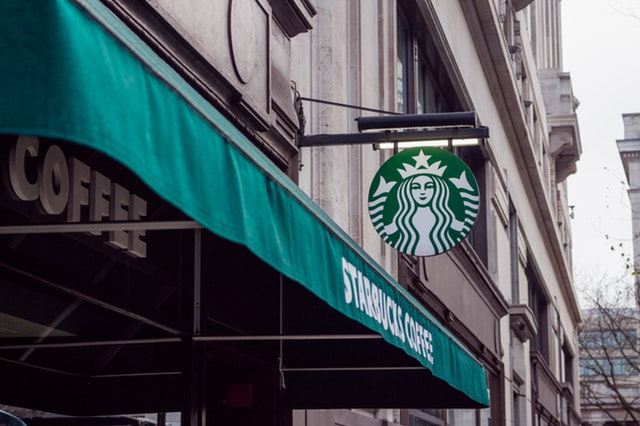Skilled nursing and senior housing operators often point to wage gains at retail chains as a major reason behind the industry’s persistent staffing woes. This week, one of the country’s largest foodservice employers unveiled another attractive perk that could lure workers away from long-term care: heavily subsidized senior care services for employees who juggle work and caregiving responsibilities.
Starbucks (Nasdaq: SBUX), the multibillion-dollar coffee company with more than 14,000 locations across the United States, announced the move this week, touting the plan as another way the Seattle-based chain cares for its baristas and other service employees.
“This is giving our partners resources for things that happen in regular life,” Ron Crawford, vice president of benefits at Starbucks, said in a statement. “We wanted to give them something to help fill the gaps.”
Under the new benefit, if a regular senior caregiver is unavailable, Starbucks employees can hire a backup in-home care provider for just $1 per hour — with the company picking up the rest of the cost.
One in five U.S. workers report they are currently providing assistance for older relatives and friends, according to a report by the AARP Public Policy Institute. The vast majority of those workers say they have to take time off or make other work adjustments to provide that caregiving.
The new Starbucks benefit will also provide unlimited senior care planning at no cost and give employees a free premium membership to CapitalG-backed Care.com, the world’s largest online marketplace for finding and managing family care.
The San Francisco-based CapitalG, formerly Google Capital, is the late-stage growth venture capital fund financed by Google parent company Alphabet Inc. (Nasdaq: GOOGL). In 2016, Google Capital invested more than $46 million in Care.com, making it the online resource’s largest shareholder.
“Sandwich” struggles
The workforce shortage facing skilled nursing facilities has multiple causes — rising minimum wages in various parts of the country, lack of nurses with higher-level certifications, and a booming economy that has generated record-low unemployment levels and fierce competition for hourly employees. There’s also the persistent perception of skilled nursing as less desirable or more demanding than foodservice or retail positions.
“For us, in health care, taking care of sick people, it’s harder. It’s not the most glamorous job,” Gail Sheridan, chief clinical operations officer at senior housing and skilled nursing provider Tealwood Senior Living, said during a press conference on staffing at the American Health Care Association’s annual conference in San Diego this week.
While some operators have attempted to keep pace with wage gains, senior housing and care operators can’t always compete: One distribution company in Tealwood’s Minnesota market offers hourly starting wages that are $5 to $6 higher than Sheridan’s company offers, along with free transportation to and from work, she said.
But it isn’t always about wages, according to LaShuan Bethea, vice president of legislative affairs at skilled nursing giant Genesis HealthCare (NYSE: GEN). Because it’s a job-seeker’s market, all workers have the ability to compare both wages and benefits across increasingly desperate employers — and the final wage isn’t always the deal breaker.
“Employees are smarter. They’re not just walking in the door. People are working remotely. They’re working from home. We as providers have to be competitive,” Bethea said.
Flexibility can trump financial benefits for the so-called “sandwich generation,” the cohort of workers caring for both children and aging adults. The overall benefits package from Starbucks, for instance, includes mental health benefits and paid parental leave. Additionally, earlier this year, the company rolled out a benefit that allows U.S. employees to accrue paid sick time based on hours worked and use it for themselves — or for a family member who needs care.
Access to a premium Care.com membership — valued at about $147 — gives Starbucks employees the ability to search for or post jobs for one-time and recurring caregiving needs. Launched in 2006, Care.com currently has more than 30 million members in 20 countries.
“Employers like Starbucks have innovative thinking that goes beyond the required benefits,” Sheila Lirio Marcelo, Care.com founder and CEO, said in a statement.
The senior care planning portion of the new benefits package will connect Starbucks employees with a senior care advisor to help workers understand long-term caregiver options, housing alternatives, finances and legal concerns, according to the company.
Starbucks highlighted its new benefits package the same day activist investor Bill Ackman — and his hedge fund, Pershing Square Capital Management — announced a $900 million stake in the company.
In addition to covering backup care costs for adult caregiving services, Starbucks is also covering costs for up to 10 days of backup child care, including daycare services.
Starbucks has not disclosed the projected cost of the backup care benefit.
Written by Robert Holly with additional reporting by Alex Spanko
Companies featured in this article:
CapitalG, Care.com, Genesis, Genesis HealthCare, Pershing Square Capital Management, Starbucks, Tealwood Senior Living



